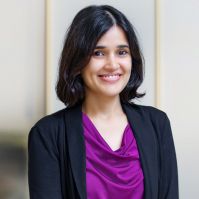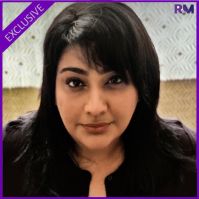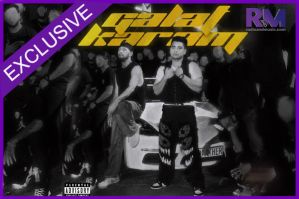Azal band member Ehtasham - 'The most important thing for us is get noticed and reach out to the audience'
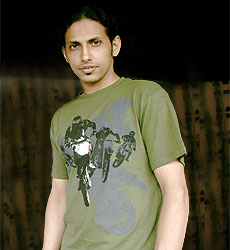
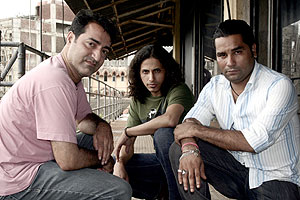
After rocking the Pakistani music scene with 'Aisi Taisi', Azal, the band has come down to India to work their magic on the Indian audiences.
The band comprises Ali Rajab, Ehtesham (aka ET), Sameer and Shabi. In conversation with Radioandmusic.com's Shabana Ali, ET reveals more about the band and future projects.
Excerpts:
What is the album about?
Azal is all about good music. The album is alternative progressive pop rock genre. The melodies are eastern, with colours of Pakistani and Indian music. The songs are fused with modern and western melodies.
It has 10 tracks which encompass the chemistry between Pakistan and India. We believe that we are the sons of the soil and it's more about the music of the soil. We are targeting the mass market of both Pakistan and India, which people can easily relate to and enjoy, which is very important to us.
Why the name Azal?
It's a Persian word which means beginning of the beginning. Our album's title is a route to infinity. So, it's the music journey we are enjoying. Music for us is everything, we live, eat and sometimes even sleep music. Azal is all about the passion of the music in us.
How long did it take you to form the band and make the album?
Well, it all started six years ago. We worked for production houses in Karachi where we worked for dramas, jingles, promos etc. I used to be an editor there and Shabaz was the music head of the department. We used to sit around and chat about music there. Then Rajab came up with a solo song for different channels which got a huge response from both India and Pakistan. Then we thought that if we have the talent, we should make a collaborative effort which we could just give a name to. That's how Azal came up.
Then, we decided to live together to understand each other and each other's thoughts. We stayed together for two to three years and then made the melodies and songs. Then we were ready to launch the album.
How do you divide the responsibilities amongst yourselves?
I work on the tunes, lyrics as well as vocals. Rajab Ali Khan comes from the Gwalior family and is the grandson of Ustad Mubarak Ali Khan. He is the lead vocalist as well as writes melodies. Azal is the brainchild of Shahbaz Ali Khan. He is behind the arrangements, sequencing and compositions. He is the producer of our album, Road to Infinity. Sameer Ahmed plays bass guitars, has played rhythm on the album and is the co-producer of our album. Azal is a unit and all of us are involved with the process of making this album.
Why did you Times Music to launch your album in India?
We pitched for every label in India. The response from Times was very good. The offers and spots they were giving to us were phenomenal and were willing to give us a very good platform.
In Pakistan, we released our album in May with The Muzik records, while, in the USA, we launched it with Sangeet records.
What is the music scenario in Pakistan currently?
It's booming. People are coming from all around Pakistan with music albums. In Pakistan, the pop scenario is very much the trend. And, it's not just now, it's been there from the 70's.
The music scenario in India is Bollywood dominated. Do you think pop albums stand a chance in this crowded marketplace?
Yes, we are aware of the fact. In fact, Bollywood music is big, both in India and Pakistan. But definitely, we have an edge in Pakistan, whereas in India, only outstanding bands like Silk Route, Euphoria and some more have made it big.
What we are offering is youthful music which is likely to click with the audience.
Are you happy with the royalties you get out of such albums?
In the US, we have a royalty share according to the contract. But even then, the US market is not that big for us. We are mostly targeting the Indian and the Pakistani markets, where we don't get a share of the royalties. The most important thing for us is get noticed and reach out to the audience. Things are very organized in the US, which is not the case in India and Pakistan.
Why do we see so many Pakistani singers on the Indian music scene nowadays?
Why not? It's very important for singers to reach out to all types of audiences. Both countries speak the same language and feel the same. We are just divided with a political line. Why should we not communicate well with people on the other side?




